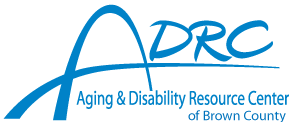Noticing changes in our thinking and memory can bring about a number of questions. Is it dementia? What are ways to manage this disease? What are some of the symptoms? How and what should I be planning for in the future? While there are many unknowns in life, there is quite a bit that we can do to plan for our future if we are on the dementia journey. Through our preparations, we can find comfort and empowerment.
1. Find Out What’s Going On: Getting an Early Diagnosis
One of our first steps when we are noticing changes in our thinking and memory is to talk with professionals about what’s going on, because early detection is important. A free Brain Check-Up at ADRC can be a good starting point and can help indicate if further medical care may be important. Conversations can help us know more about what to expect over time, caring for our needs, and more.
2. Educate Ourselves and Others
Education is an important step, especially with a disease like dementia. There are many opportunities including classes, online options like Trualta, one-on-one meetings, and formal training programs like Purple Angel and Dementia Friends. Purple Angel training provides dementia education to businesses and organizations, while Dementia Friends brings information to neighborhood associations and schools. Both are provided at no cost.
3. Establish a Support System
Many things in life require a team approach, and caring is no different! An important step is to find folks who can each help in their own way. Support groups and tapping into community programs are great ways to begin building your support system.
Remember the Purple Angel and Dementia Friends trainings? Those are the folks we can turn to for support. Neighbors and businesses who are knowledgeable about dementia can help us keep an eye out for our loved one or ourselves, navigate tricky situations, and make day-to-day life easier. If your neighborhood, school group, or favorite businesses are not trained, we can reach out to them.
4. Form Financial and Legal Plans
Financial Power of Attorney and Power of Attorney for Healthcare documents can help us consider our own wishes, assist a loved one with theirs, and aid those around us to know what to do.
5. Make a Caregiving Plan
Having a plan for day-to-day care can be a big help. Thinking about what we enjoy doing and what we must get done can help establish a routine. A plan can also help us see where extra support may be needed.
While this is not an all-inclusive list, it’s a good start! Our journeys are all unique, so each of our plans will also be unique. The key is to start asking questions, getting information, forming a plan, and reaching out for help. For more information, please give us a call at (920) 448-4300.
Sources: www.alzheimers.net, www.alz.org, www.alzheimers.gov




